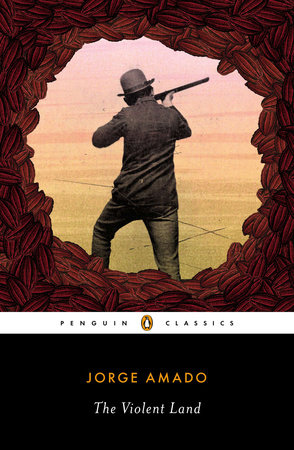
The Violent Land
Jorge Amado
Paperback
June 25, 2013 | ISBN 9780143106371
AmazonBarnes & NobleBooks A MillionBookshop.orgHudson BooksellersPowell'sTargetWalmart
Ebook
June 25, 2013 | ISBN 9781101602928
AmazonApple BooksBarnes & NobleBooks A MillionGoogle Play StoreKobo
About the Book
A Penguin Classic
The siren song of the lush, cocoa-growing forests of Bahia lures them all—the adventurers, the assassins, the gamblers, the brave and beautiful women. It is not a gentle song, but a song of greed, madness, and blood. It is a song that promises riches untold, or death for the price of a swig of rum . . . a song most cannot resist—until it is too late—not Margot, the golden blond prostitute who comes for love; not Cabral, the unscrupulous lawyer who works for one of the Cacao “colonels”; and not Juca, whose ruthless quest to reap the jungle’s harvest plants the seeds of his own destruction.
For more than seventy years, Penguin has been the leading publisher of classic literature in the English-speaking world. With more than 1,700 titles, Penguin Classics represents a global bookshelf of the best works throughout history and across genres and disciplines. Readers trust the series to provide authoritative texts enhanced by introductions and notes by distinguished scholars and contemporary authors, as well as up-to-date translations by award-winning translators.


